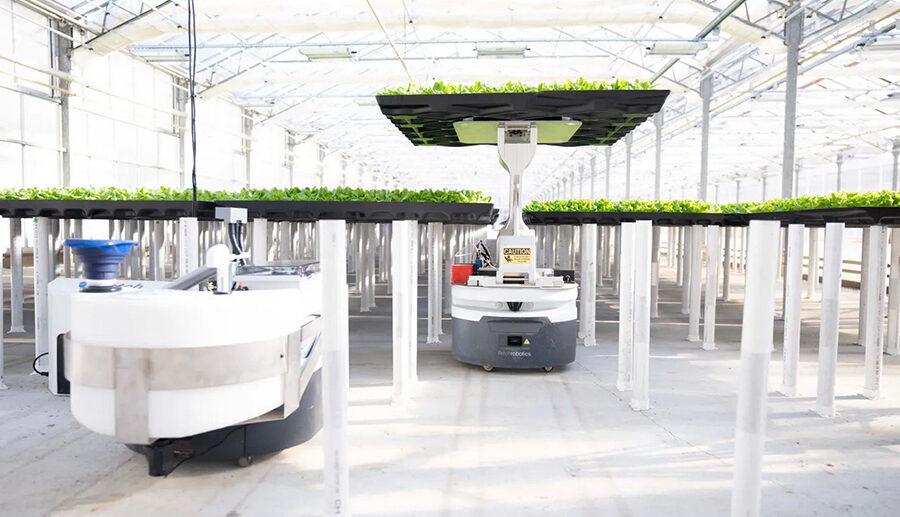Hippo Harvest: Transforming Indoor Farming with Robotics and AI

In the world of agriculture, growing crops like lettuce may seem straightforward, but the reality is far more complex. Farmers face a myriad of challenges, from pest infestations to unpredictable weather patterns, that can impact crop yields. To mitigate these risks, many growers have turned to indoor farming, yet even this approach has its own set of challenges, including profitability concerns and operational inefficiencies.
The Rise and Fall of Indoor Farming Startups
Indoor farming startups experienced a surge in popularity in recent years, attracting billions of dollars in investment. However, the sector has faced setbacks, with several high-profile companies filing for bankruptcy or experiencing financial difficulties. Despite these challenges, there are signs of hope on the horizon.
Hippo Harvest’s Innovative Approach
Hippo Harvest, a pioneering startup in the indoor farming space, has garnered attention for its innovative use of robotics and AI to revolutionize crop cultivation. Unlike traditional indoor farming companies, which focus primarily on automation, Hippo Harvest leverages repurposed warehouse robots to optimize crop management and harvesting processes.
Repurposed Robots: A Game-Changer for Indoor Farming
Drawing inspiration from Amazon’s advanced warehouse robotics, Hippo Harvest reimagined these technologies as essential tools for greenhouse operations. By repurposing robots to perform tasks like watering plants and gathering data, the company has transformed the way crops are cultivated indoors.
Reinventing Crop Cultivation
Hippo Harvest’s approach to crop cultivation extends beyond robotics to address fundamental challenges in indoor farming. The company’s modular greenhouse design allows for greater control over environmental variables, such as nutrient levels and plant microbiomes, leading to more efficient experiments and improved crop health.
Sustainable Solutions for the Future
In addition to enhancing productivity and efficiency, Hippo Harvest is committed to sustainability. The company boasts significant reductions in water usage, fertilizer consumption, and pesticide usage compared to traditional agriculture. Furthermore, Hippo Harvest aims to achieve net-zero carbon emissions by 2040, underscoring its commitment to environmental stewardship.
Scaling Operations and Driving Growth
With a recent $21 million Series B funding round, Hippo Harvest is poised to expand its operations and bring its innovative farming solutions to market. By focusing on California and leveraging partnerships with retailers like Amazon Fresh, the company aims to accelerate its growth while delivering fresh, sustainably grown produce to consumers.
A Bright Future for Indoor Farming
Despite the challenges facing the indoor farming industry, Hippo Harvest represents a beacon of hope for investors and consumers alike. By harnessing the power of robotics and AI, the company is reshaping the future of agriculture, one lettuce leaf at a time. As it continues to scale and innovate, Hippo Harvest is poised to lead the way in sustainable, tech-driven farming practices.













